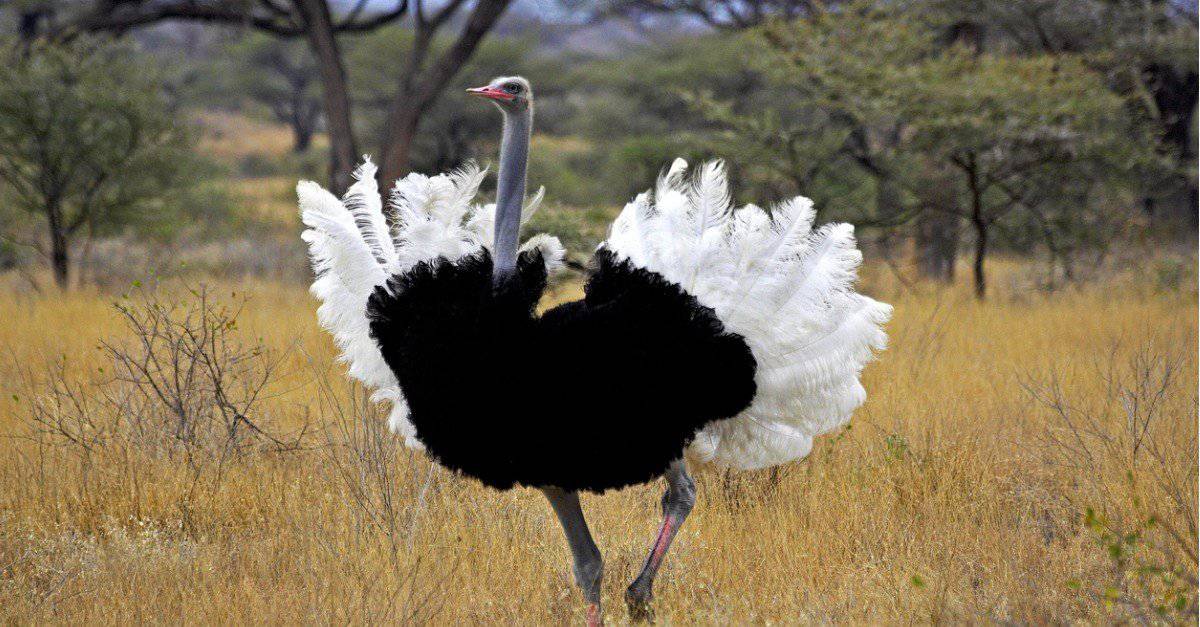Ostriches are known for their distinct appearance, with long necks and legs, large bodies, and unmistakable feathers. But did you know that these birds also have surprisingly delicious meat? Despite their wild and unique characteristics, ostriches are becoming increasingly popular in the culinary world, providing beef-like meat that is low in fat and high in protein. In this article, we’ll explore the history and benefits of ostrich meat, and why it’s quickly becoming a sought-after delicacy among food enthusiasts.
Ostrich Meat: Discover the Benefits of Adding This Lean Meat to Your Diet
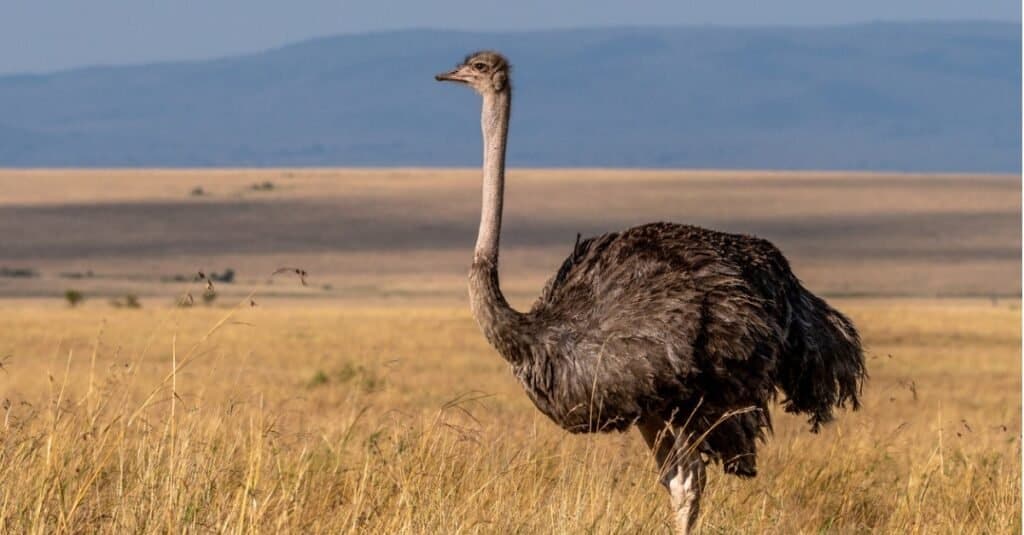
Surprisingly, ostrich meat is low in fat, high in protein, and more sustainable than other meats.
©NileshShah/Shutterstock.com
Here are some potential benefits of adding ostrich meat to your diet that I found in the search results:
Low in fat:
Ostrich meat is leaner than most other meats, making it a healthy option for those looking to lose weight or improve their overall health.
High in protein:
Ostrich meat is known to provide a rich source of high-quality protein, essential for the growth and repair of muscles, tissues, and other essential structures in the body.
Rich in nutrients:
Ostrich meat is recognized for its significant levels of vital vitamins and minerals, such as iron, zinc, and vitamin B12, that are essential for supporting optimal health.
Low in cholesterol:
Ostrich meat is low in cholesterol, which can help reduce the risk of heart disease and other health problems.
Sustainable and environmentally friendly:
Ostriches require less water and feed than other livestock, making them a more sustainable and environmentally friendly option for meat production.
Unique and flavorful:
Ostrich meat has a distinctive flavor that many people enjoy, providing a unique addition to your diet.
The History Of Ostrich Farming For Meat
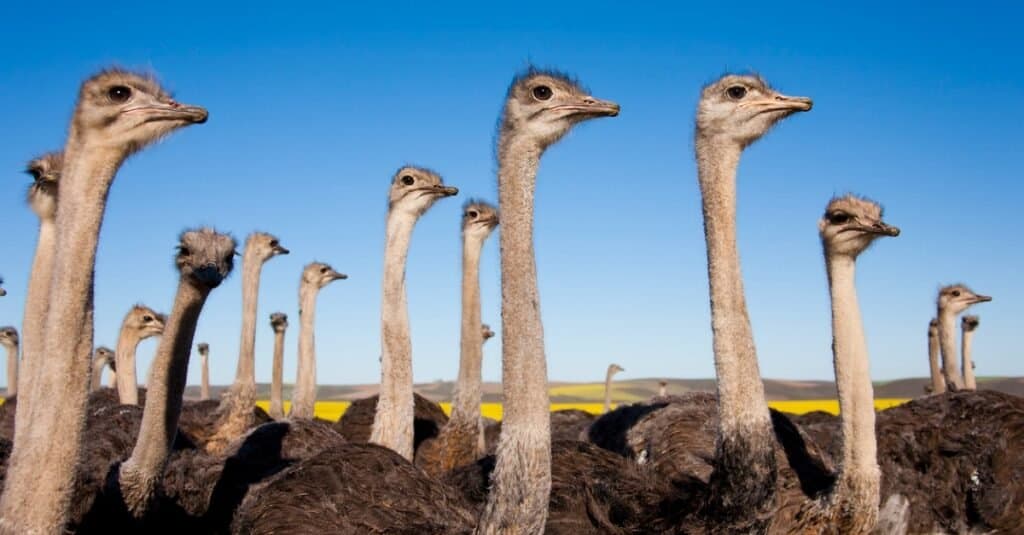
Ostrich farming has been a challenging industry, but it is slowly seeing a resurgence.
©iStock.com/AndreaWillmore
The US ostrich farming industry began about 30 years back as farmers and breeders joined the business in large numbers. There was high demand for ostrich meat, eggs, and feathers, which led to increased domestication of the birds.
Despite initial enthusiasm, ostrich farming became a challenging industry. Farmers found it difficult to make profits since the market for ostrich meat was slow to take off. By the late 90s, oversupply and low demand caused the ostrich industry in the US to decline significantly.
However, recent times suggest that ostrich farming in the US is moving towards growth and revitalization. This is in part due to increased interest in sustainable and healthy food options. Ostrich meat has become a sought-after, low-fat, and high-protein meat alternative to more traditional options such as pork and beef.
Overall, the history of ostrich farming in the USA has had its ups and downs, with early excitement followed by difficult challenges. Still, with more concern for nutrient-rich and sustainable food options, it is possible that ostrich farming and the production of ostrich meat are ready for a comeback.
Is It Ethical To Eat Ostrich Meat?
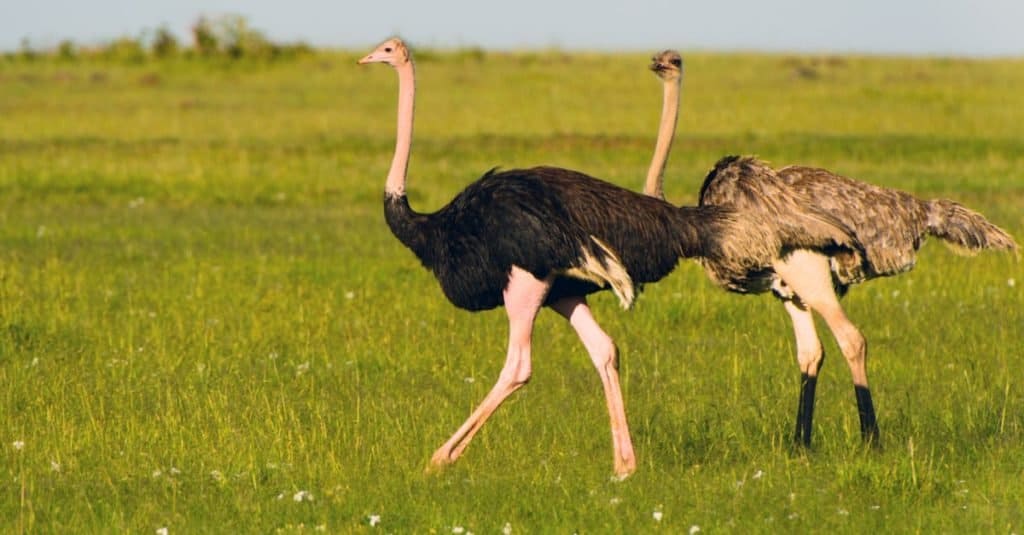
Ostrich meat is more sustainable than meat produced from livestock farming.
©Cristian Zamfir/Shutterstock.com
Whether eating ostrich meat is ethical or not is a multifaceted topic that varies depending on who you ask. Some believe that it’s okay, while others think it’s not.
Generally, ostrich meat production involves raising the birds on farms where they are later killed for their meat. Some people argue that this farming method is more humane and sustainable compared to that of traditional livestock farming. However, others may be concerned that it’s still animal exploitation.
Also, while some may find the idea of consuming exotic animals like ostriches uncomfortable, it may be more appealing to others looking to diversify their nutrition intake and promote sustainable and ethical eating habits.
Ultimately, deciding whether to eat ostrich meat is a personal decision based on an individual’s values, cultural traditions, and ethical beliefs. It’s advised that consumers do their research and evaluate aspects such as animal welfare, environmental impact, and personal health when considering the meat they consume, regardless of the animal.
Are Ostriches Going Extinct?
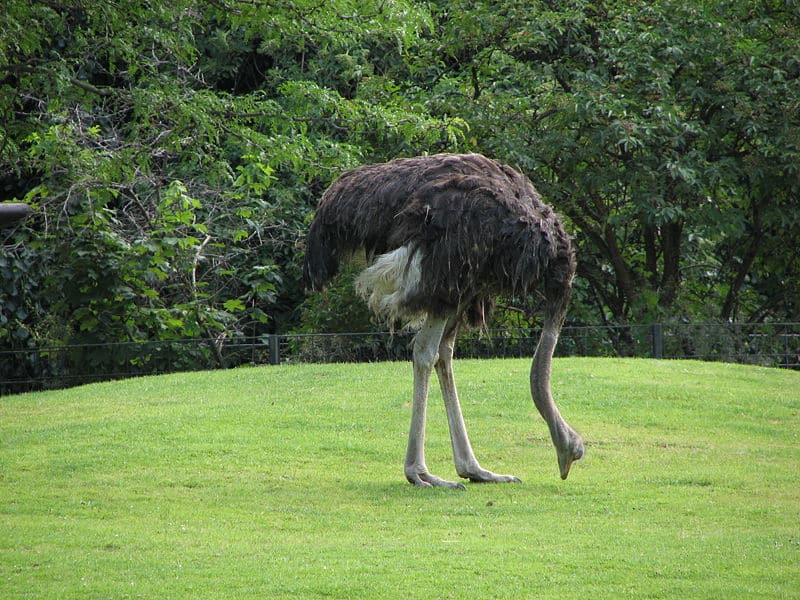
Ostriches are not endangered and are concerned an animal of “Least concern.”
©Adamantios / Creative Commons – Original
Ostriches are currently not at risk of extinction and are considered a species of Least Concern by the International Union for the Conservation of Nature (IUCN). However, the North African ostrich is critically endangered and could become extinct without immediate conservation interventions, similar to its relative, the Arabian ostrich, according to Sahara Conservation. Furthermore, an extinct subspecies known as the Arabian ostrich previously lived in the Arabian peninsula. Despite this, the existing ostrich population is stable and has significant agricultural value, as they are farmed and hunted for their meat and leather.
In Conclusion
For individuals seeking a high-quality protein source rich in essential vitamins and minerals, the consumption of ostrich meat is a wise choice. Its nutritional makeup can aid in maintaining muscle and tissue health, promoting overall wellness, and potentially reducing the risk of nutrient deficiencies.
Furthermore, ostrich farming presents a sustainable and eco-friendly option compared to other protein sources, as it involves lower greenhouse gas emissions and water usage. While ostrich meat may not be as commonly consumed as other meats, it offers a distinctive and delectable option for those looking to diversify their diet while supporting sustainable food systems.
Thank you for reading! Have some feedback for us? Contact the AZ Animals editorial team.

